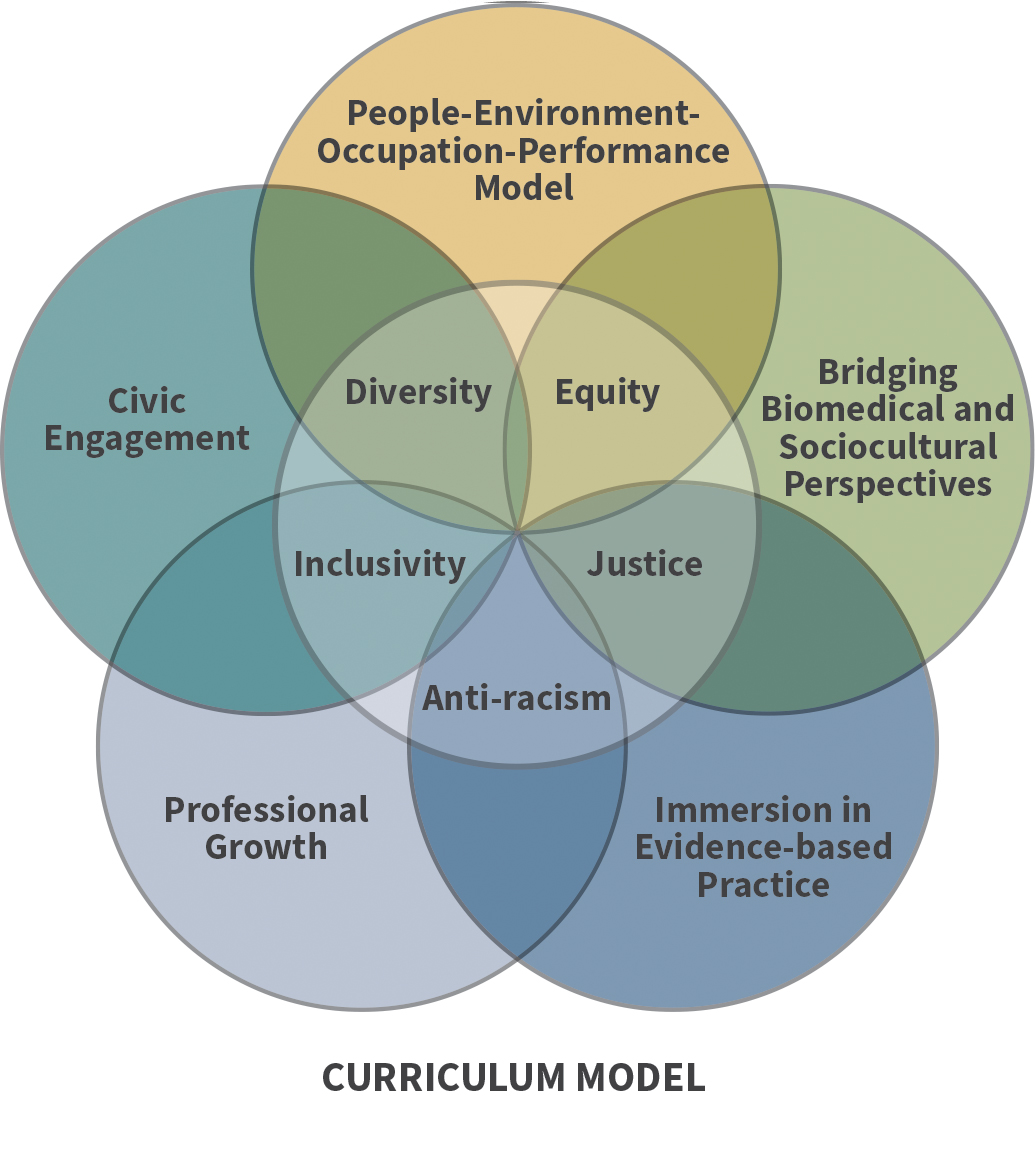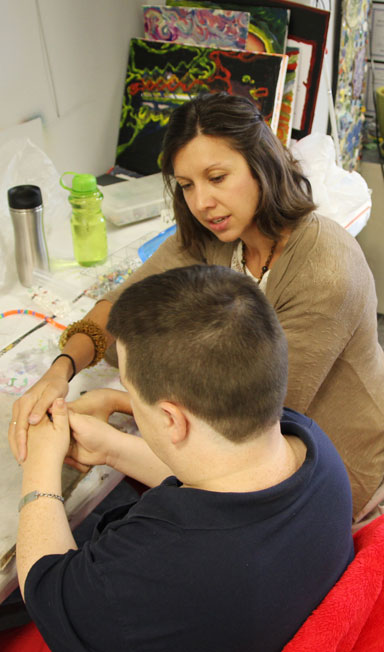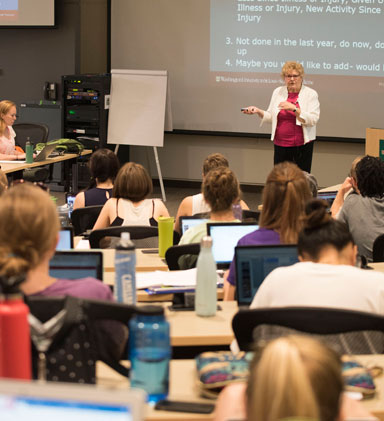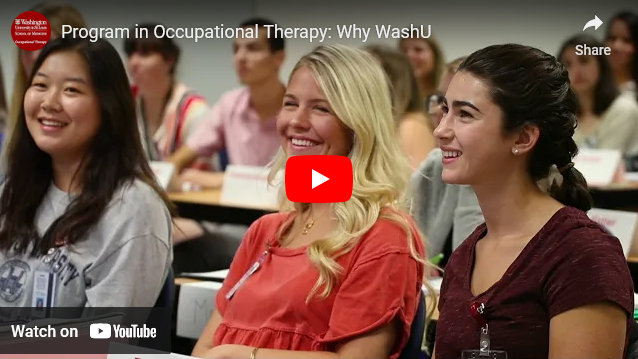Education
The landscape of health care is changing.
 Multiple factors, including aging populations, technological advancements and transitional services, have led a movement toward population health and community-based models of care. Occupational therapy helps bridge the biomedical and sociocultural perspectives of health so people can manage their health conditions, work and engage with their families and communities in meaningful ways. Occupational therapists serve many populations in both inpatient and community settings and treat a variety of conditions including neurological impairments, behavioral and mental health, work injuries and developmental delays.
Multiple factors, including aging populations, technological advancements and transitional services, have led a movement toward population health and community-based models of care. Occupational therapy helps bridge the biomedical and sociocultural perspectives of health so people can manage their health conditions, work and engage with their families and communities in meaningful ways. Occupational therapists serve many populations in both inpatient and community settings and treat a variety of conditions including neurological impairments, behavioral and mental health, work injuries and developmental delays.
Our curriculum prepares students for the health-care landscape by using active teaching and learning strategies with an emphasis on process. Students learn research-driven, evidence-based evaluation and intervention strategies to support participation and well-being across the continuum of care. The foundation for our coursework is the People-Environmental-Occupation-Performance (PEOP) model.
We share the university’s commitment to equal access, consistent with its academic mission and standards, and strives to achieve excellence through the advancement of diversity, equity and inclusion (DE&I). We believe that the academic environment is enhanced when diverse groups of people with diverse ideas come together to learn and work. We value the input of multiple viewpoints and perspectives to create a structure and culture that supports all members of our community.
Our program is part of an innovative and interdisciplinary university and medical center environment that cultivates the personal and professional growth of our students. There are multiple opportunities for civic engagement in local, regional and global sociocultural issues that impact health equity. This not only enriches the student experience, but promotes an inclusive culture of humility and sensitivity. Our graduates enter the field with a unique occupational therapy lens to view their clients, communities and that will contribute to society's need.
Both the master’s and doctoral degree programs share the same curriculum for the first year of study. Students may enroll in either degree program and apply to transfer to the other at a later date. Typically, the doctoral program attracts students who have further interest in a specialization with advanced knowledge and are preparing to be leaders to advance clinical practice, education and knowledge in the field.
-
Master’s (MSOT)
The MSOT is two and a half year program that prepares students to become a practitioner in any practice area. A master's degree is required for entry into the profession of occupational therapy.
-
Doctorate (OTD)
The OTD is a three year program for students who want to assume a leadership position in practice, management, teaching and/or clinical research.
-
Joint Degree MSOT/MPH
The MSOT/MPH joint degree is a three and a half year program that prepares students to work in a diverse array of settings including academia, community agencies, government institutions, and nonprofit organizations.
-
Post-Professional Doctorate
The online post-professional clinical doctorate of occupational therapy (PP-OTD) degree is for experienced occupational therapists with a master's degree (does not have to be in occupational therapy).
-
PhD in Rehabilitation and Participation Science (RAPS)
The Rehabilitation and Participation Science (RAPS) PhD program aims to develop rehabilitation scientists whose research questions are chosen based explicitly on their potential to generate fundamental knowledge that will enhance health, improve quality of life, and reduce illness and disability.

-
3-2 Program
The 3-2 program at Washington University allows students to finish their bachelor's and master's degrees within five and a half years. During the first three years as an undergraduate, the student takes the requirements for his or her major and prerequisites for the Program in Occupational Therapy. Accepted applicants are full-time occupational therapy students durin their senior year, reducing the time in school by one full year.
-
WUSTL 3-2 Program
Designed specifically for Washington University (WUSTL) undergraduate students, this program allows you to earn both your undergraduate degree and a Master of Science in Occupational Therapy (MSOT) within five and a half years.

The Program in Occupational Therapy is accredited by the Accreditation Council for Occupational Therapy Education (ACOTE) of the American Occupational Therapy Association (AOTA), located at 6116 Executive Boulevard, Suite 200, North Bethesda, MD 20852-4929. ACOTE’s telephone number, c/o AOTA, is (301) 652-AOTA and its web address is www.acoteonline.org. Click here to see our NBCOT pass rate.



